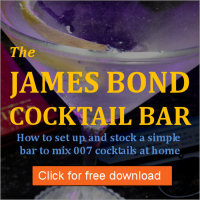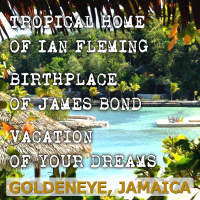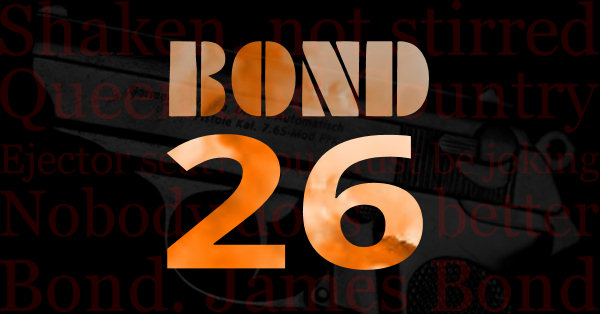Earlier this year I found myself surrounded by spectacular architecture whilst on a James Bond mission in sunny Salford. A Bond related trip to Newcastle proved to continue this theme – from the vantage point of the County Court buildings I gazed across the Tyne to Gateshead at the Baltic contemporary art gallery and Sage concert hall. My view was framed to the right by the distinctive Tyne Bridge, with its modern counterpart the tilting Millennium footbridge to the left.
By 4.30 pm it was already cold and dark as I passed the jolly Christmas display of Fenwick’s on Northumberland Street en route to my destination: the Great North Museum, Hancock. With museum closed to the public for the day by the time I arrived at 5.15, gaining entry proved to be something of a Bond-style exercise too for myself and my cohorts. However, once inside we were directed to an upper room, where David Arnold was already ensconced, clad in brown jacket and baseball cap, as he awaited the rest of his Musicians’ Union colleagues for the 6pm start.
The first part of the session was steered by a few leading questions from the MU’s Rick Juckes, beginning by asking David about his earliest musical experiences. He recalled his early formal lessons at primary school (recorder), his love of music in the cinema, and (humorously) his slight exasperation at the inability of fellow pupils unable to pitch notes. He was then asked how these early musical experiences developed over the course of secondary school. A key moment was certainly the occasion on which his father was ‘sent out’ to buy a suit and came back with an electric guitar!
This the young David learnt informally, followed by peripatetic lessons at school in classical guitar and clarinet (‘because it’s like the recorder’!). He was also composing, though with no formal guidance, and also playing piano from age 12/13, primarily as a writing tool: fragments were composed ‘in the mind’ and later tested out on the piano. After secondary he went into VI Form College, which consisted of A levels and playing in bands, gigging in pubs and the many social clubs, as there then were, in the mid-1970s industrialized Luton. He then attended Art College, noting that, as in previous generations, the vast majority of students were musicians.
David Arnold was then asked what his big break was. To this he gave a very long and coherent answer which detailed that whilst each single event didn’t necessarily appear significant in itself, it did in fact gave rise to something else…would therefore the omission of any one mini-break have removed the all-important link in the chain? The first thing was, he knew what he wanted to do: to compose for films, but where was the door into the room? So whilst writing music all the time, and playing bands, which didn’t appear to be getting anywhere, he worked variously at a ping-pong ball factory; dartboard factory; in data research; and generally ‘blagging’.
During this time he also attended the Luton Arts Centre where he met a ‘film director’, Danny Cannon, to which he was the ‘film composer’. This carried on for a 2/3 year period at the end of which (in 1986) a short film won an award. On the back of this Alan Parker recommended Danny to enrol for studies at the National Film and Television School. David also applied but didn’t get in, but still carried on working on Danny’s films. Taking stock of his position at this time, he thought he was getting nowhere and moved back in with his parents, and undertook lots of temporary manual work. He didn’t have a degree but he did have a portfolio of 24 short films (commenting later that it was crucial to have examples of work in the genre one was attempting to pursue).
Danny Cannon then got a ‘low budget film’ The Young Americans and asked David Arnold back. He wrote the song Play Dead for the film…but who to record it? None other than a singer ‘from down the road’ – Björk – ‘before she was famous’! Returning from meeting about the film in Los Angeles, he was back on the lookout for part time work, when he got the call to score Stargate. This he did in much the same way as his other films: sat on the end of his bed in front of a video monitor with a keyboard balanced on his lap! The only difference was he now had a music editor. This now DID lead to other things.
Asked when an agent or promoter came into his life he replied that he realised he needed that sort of help when the contract for Stargate turned out to be 1 and a half inches thick! He further commented that he had started as a film composer aged 18, but didn’t get paid until he was 34…quite a long haul.
There then followed a question and answer session from the floor. Given that the audience consisted entirely of professional musicians, a good deal of this was devoted to approaches to specific musical techniques such as melody writing, orchestration etc. His answers were again disarming, and pertinent. When asked, for example, whether he ever worried that some newly composed music might have already been written, he simply replied ‘yes’.
Expanding on some of the points he went on to say that as it was now possible to get fired on the basis of a mid-production ‘mock up’ of a film’s music, it was crucial to have demos which were as realistic as possible. (He related the amusing story of Alfred Hitchcock’s complaint that Bernard Hermann’s final scores always sounded completely different to his drafts!) To illustrate this point he then played a demo featuring synthesized orchestrations. Despite the considerable level of sophistication, the gulf between that and the version using a real orchestra, which he played next, was still vast.
Asked what his proudest moment as a film composer was, he replied that it was the 1st 8 bars of the music from the song Playdead. David Arnold also talked about his project Shaken and Stirred in which he recorded new versions of Bond theme songs. It was recorded (after he had completed the score of Stargate) in 1995 and released in 1997. He put a lot of his own money into the recording which was expensive due to the usage of an orchestra. With typical modesty he stated that it sold on the basis of who else was on it. An unforeseen silver-lining, however, was a recommendation from John Barry that Arnold should score the next Bond film. This in fact happened later the same year with Tomorrow Never Dies.
He went on to speak of his determination to write the title song as well as the incidental music. He played a recording of the song Surrender (sung by kd lang) which was originally intended to have been the theme song to the film. He related that although all of the same personnel were used at the same recording venue, for no apparent reason the demo proved superior to the actual recording. Consequently, Surrender appeared at the end of the film and was replaced by Tomorrow Never Dies sung by Sheryl Crow. In an informal chat after the main session I said that I hoped he didn’t feel too badly about Surrender and related the story that Harry Saltzman didn’t really like the song Goldfinger declaring that if there had been more time John Barry would have been off the movie! Of course he already knew it, but accepted that it made a good tale even if taken with a pinch of salt (see my previous article here).
David Arnold concluded by mentioning that his involvement with the Olympics had caused him to spend 2 years away from films, and that he was currently writing a musical – indeed he had some work for this project earmarked for his train journey to London that evening. This masterclass had offered a fascinating insight into the world of a contemporary film composer who was refreshingly modest and humble about his achievements. It revealed that hard work, a commitment to the cause, self-belief, a willingness to undertake menial work, a ‘match fit’ mentality, friendship, luck, and an absolute refusal to give up, had all played their part in getting him to where he is today.
Tim Mottershead is a professional pianist, composer, and writer on music, regularly contributing to a number of scholarly journals including TEMPO. As a pianist his repertoire ranges from specialist concerts devoted to individual composers, to lighter programmes, and themed recitals; one of which is a James Bond concert For Your Ears Only.
Buxton Fringe review 2008: “The tunes clearly create great demands on the pianist as he attempts to do justice not just to the tune but also to the arrangements…Tim Mottershead is to be commended for his arrangements and technical skill in bringing these themes to the piano…Between songs he provided a well researched and often droll commentary on each film and/or book and often the differences between them… Goldfinger and Diamonds Are Forever sounded terrific on solo piano…[whilst] Madonna’s Die Another Day, was turned into something of an avant garde masterpiece at the hands of Mr Mottershead.”










